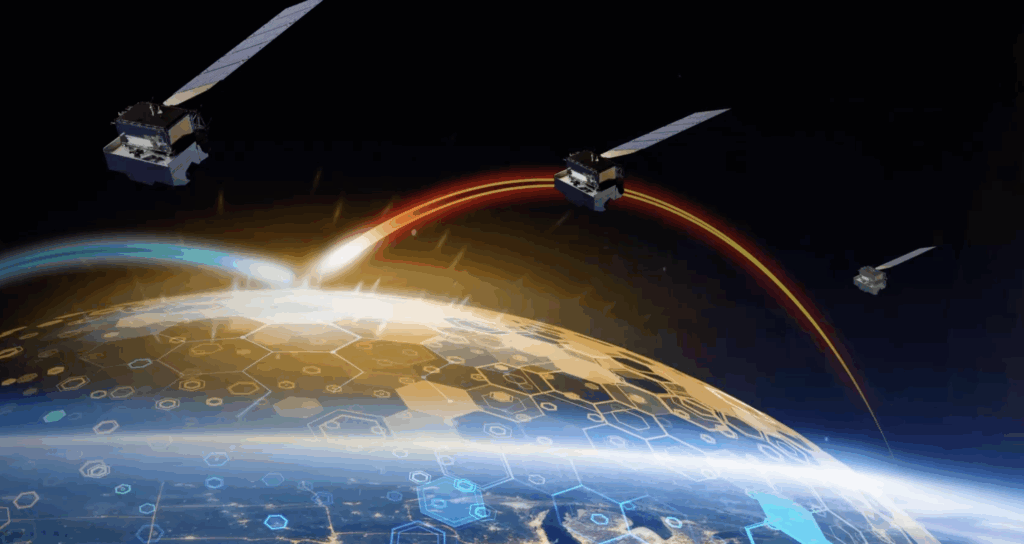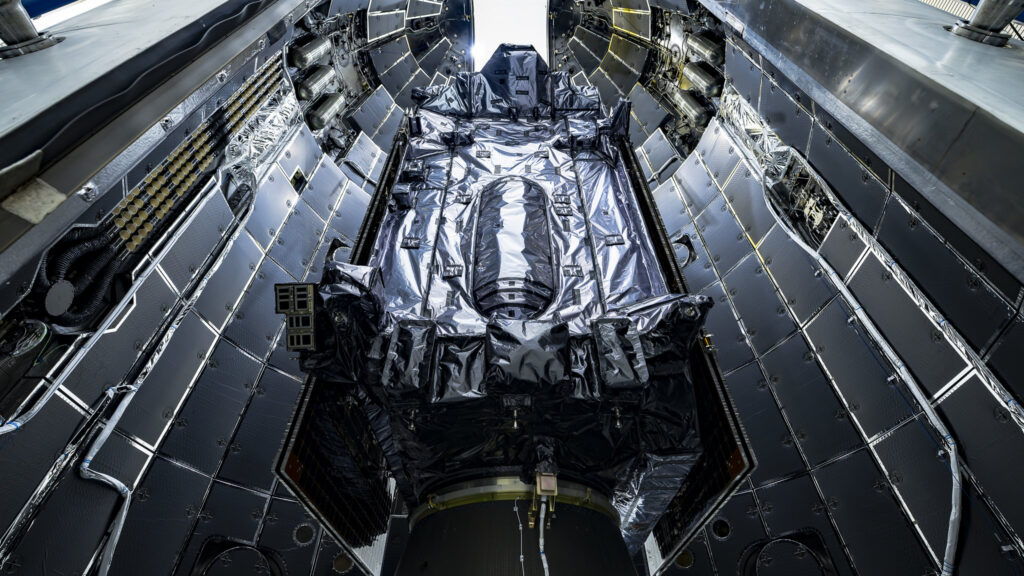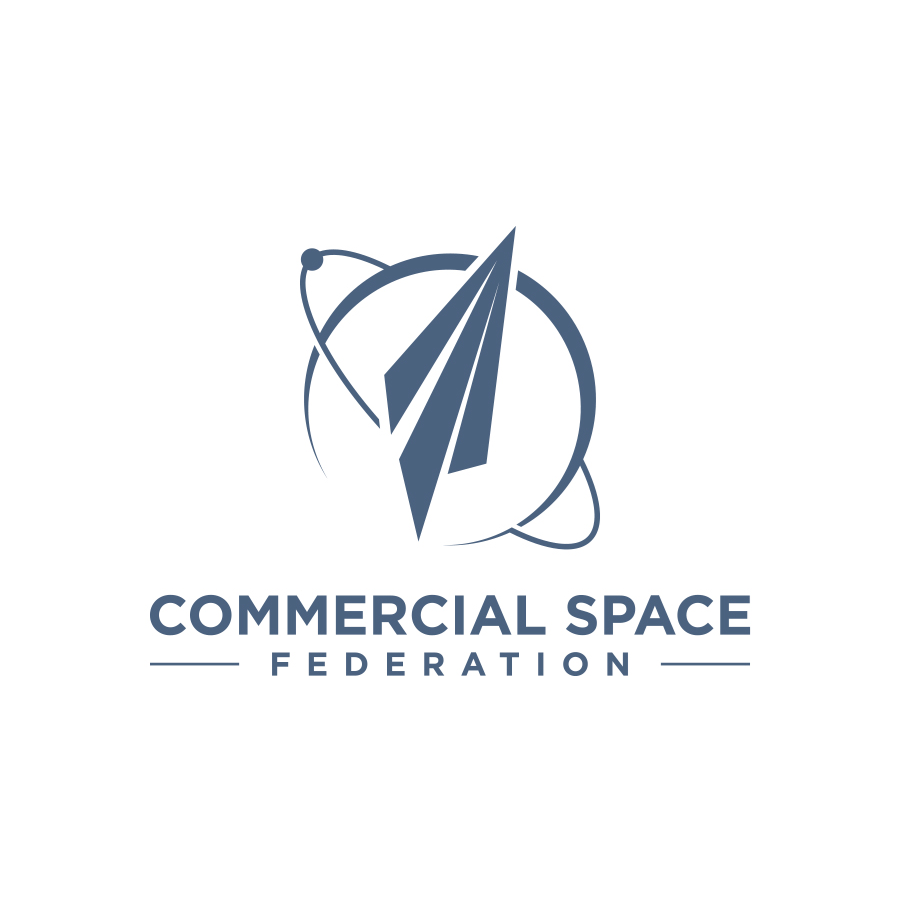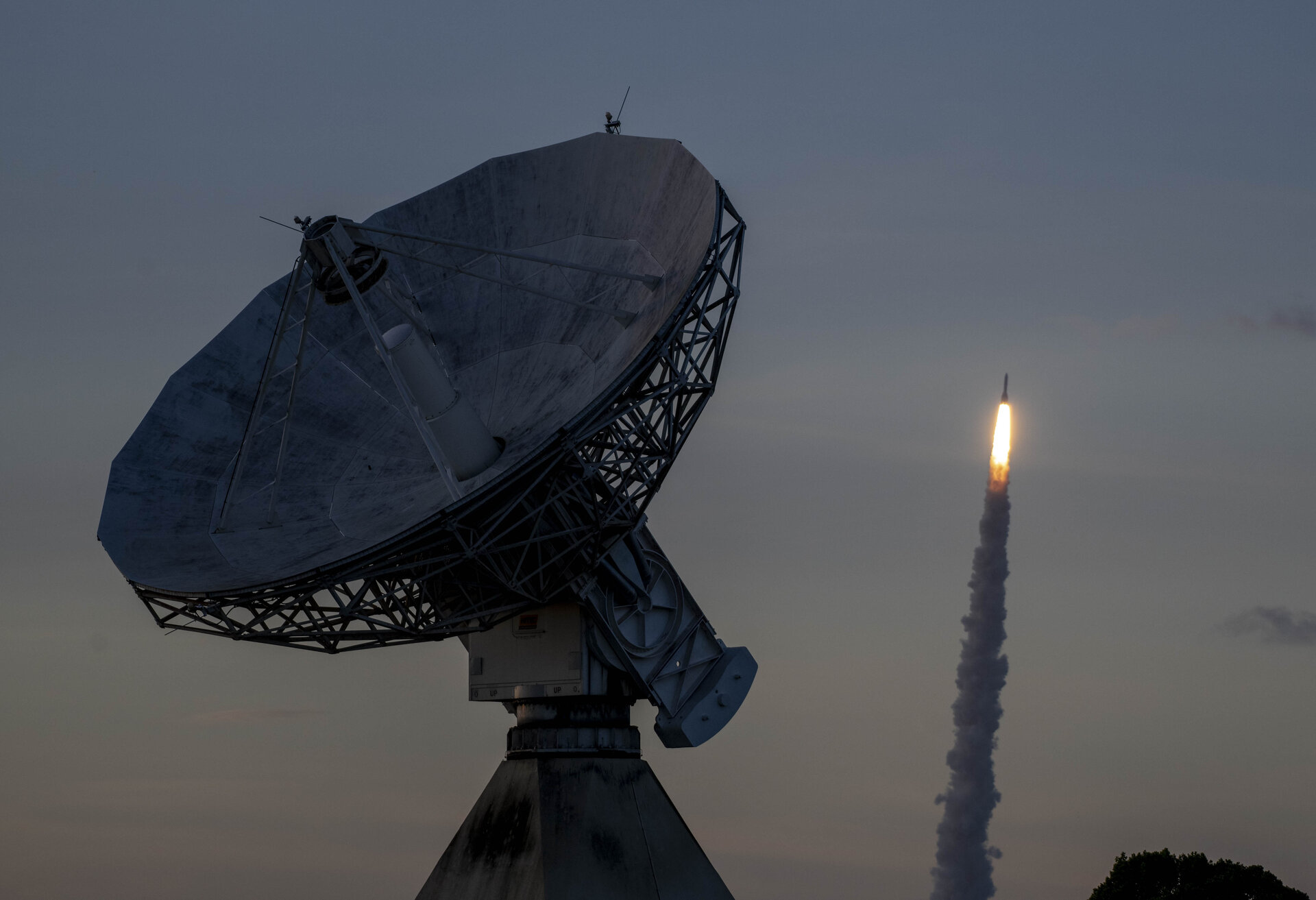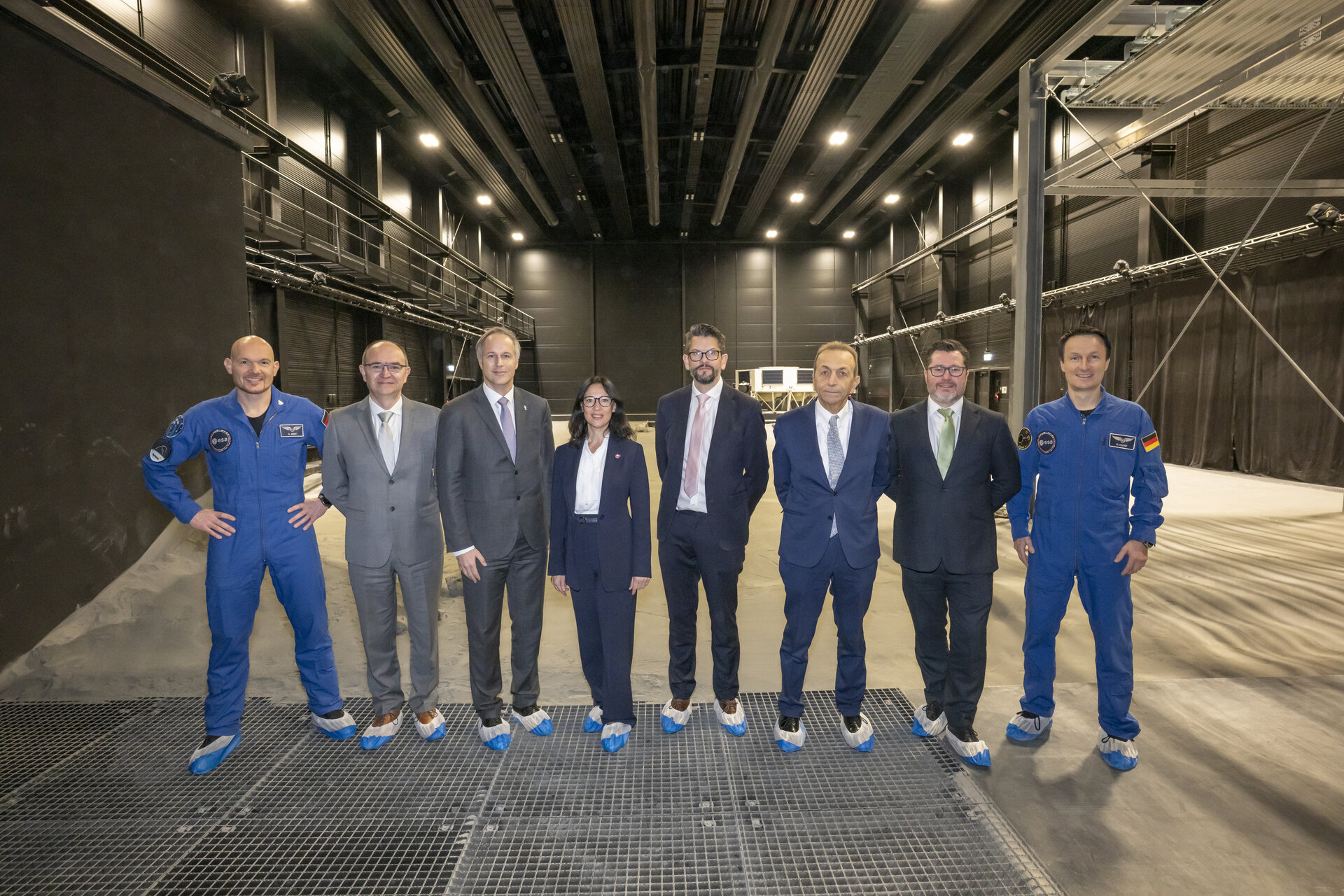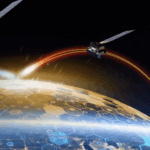Now Reading: Industry expects Germany to increase ESA contributions
-
01
Industry expects Germany to increase ESA contributions
Industry expects Germany to increase ESA contributions
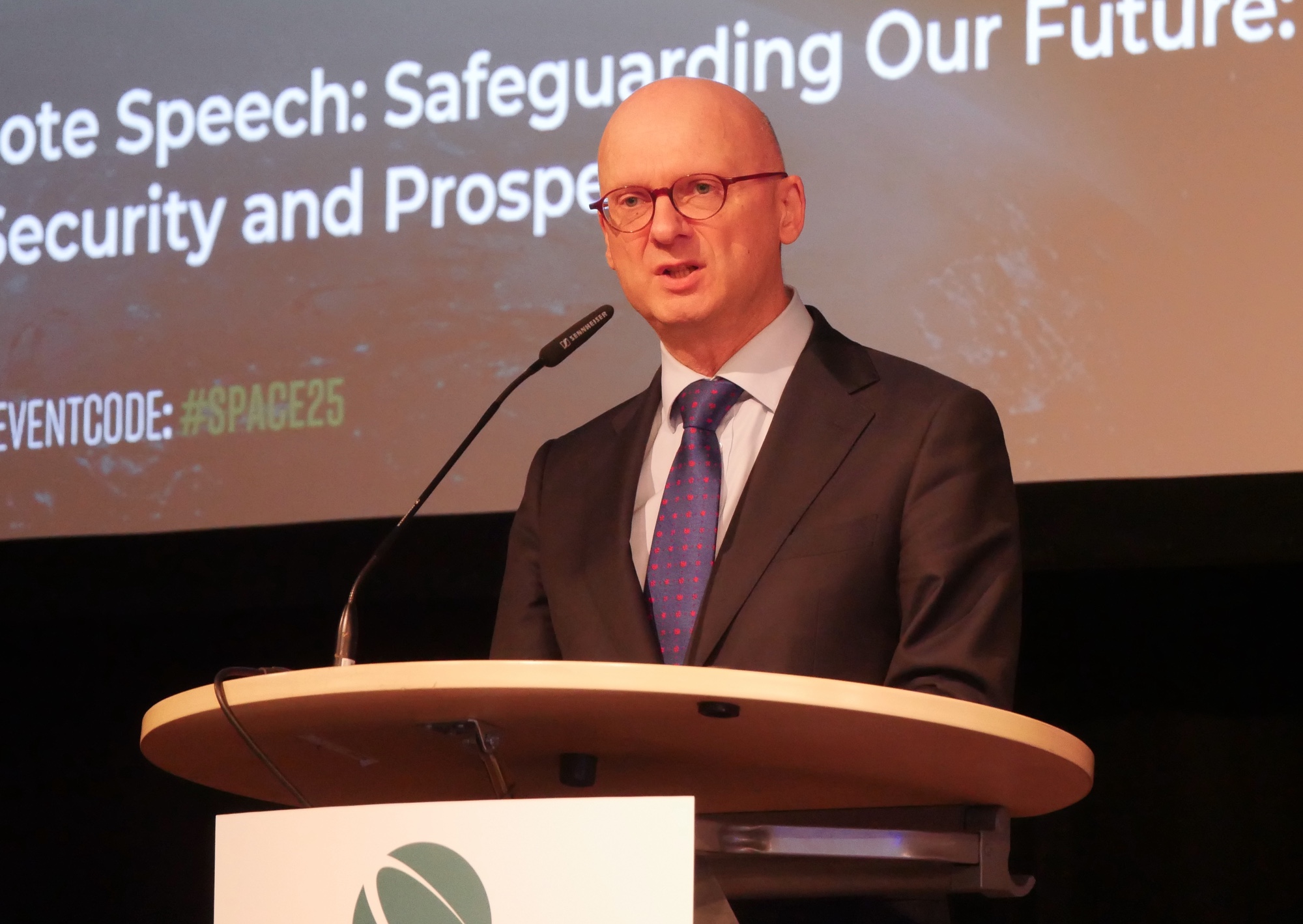

BREMEN, Germany — With European Space Agency member states set to decide on the agency’s budget for the next three years, all eyes on how much Germany will offer to support an ambitious series of programs.
At the previous ministerial conference in 2022 in Paris, Germany was the largest contributor, providing about 3.5 billion euros ($4 billion) before inflation adjustments for three years.
With the next ministerial scheduled for Nov. 26-27 here, there are industry expectations that Germany will offer significantly more, as ESA seeks about 22 billion euros overall for the next three years.
How much more, though, is not clear. Industry speculation, from discussions on the sidelines of the Space Tech Expo Europe conference here this week, has suggested Germany could offer between 4.5 and 5 billion euros, although some hope for even more.
In public comments, both executives and politicians have been encouraging the German government to provide a major increase. “Europe, in my opinion, must show that it can act independently and strategically, aligning its space technologies with the needs of its citizens, its economy and its security,” said Kristina Vogt, senator for economy, ports and transformation for the German state of Bremen, in remarks opening the conference Nov. 18.
“I sincerely hope that Germany, as the host nation, will live up to this responsibility by strengthening its leadership in European space by remaining a reliable partner in key program such Ariane, Artemis and Earth observation,” she said.
“Obviously, with Germany being the host, the expectation is high that Germany makes significant commitments,” Marco Fuchs, chief executive of German aerospace company OHB, said of the upcoming ministerial during another conference session Nov. 18.
He didn’t estimate how much Germany would contribute, but was optimistic that ESA would hit its overall target of 22 billion euros. “There’s still some uncertainty, but now we have a new government that even has a ministry of space,” he said, which had not existed before in the country.
He said the German military may provide some of the country’s funding to ESA, which has not been the case in the past. The German government announced in September it would spend 35 billion euros on military space over the next five years, but has provided few specifics on how that funding would be allocated.
Some at the conference said privately they expected the German military to support the two German launch companies, Isar Aerospace and Rocket Factory Augsburg, that are seeking funding through the European Launcher Challenge.
One potential sticking point, though, may be the European Resilience from Space (ERS) program to support Earth observation, communications and navigation projects with defense applications. “Germany is not yet very much fond” of ERS, he said, but didn’t elaborate.
Pierre Godart, chief executive of ArianeGroup’s German business unit, offered a similar assessment on the same conference panel. “Germany has changed, a little bit, its positions and taken the lead in this area, which is very good news for German industry,” he said.
“There is a clear understanding that space is a very important industry,” he said, predicting that ESA would get its full 22 billion euros.
In a speech at the conference Nov. 19, Marcus Pleyer, state secretary — the highest-ranking civil servant — of Germany’s Ministry of Research, Technology and Space, stressed the importance of German support for ESA but offered few funding details.
“Germany is and remains a strong and reliable partner of ESA,” he said. “ESA programs form the backbone of a high-performing, innovative and competitive European space industry.”
“We are committed to continuing this success story,” he said of ESA programs, “and we are committed to use our available budget in order to shape the German and European space sector, because a strong ESA needs a strong German space industry, and vice versa.”
While Germany has not offered specifics on its support for ESA, one other country has. Canada’s industry minister, Mélanie Joly, announced Nov. 18 that the Canadian government would increase its funding for ESA programs by $528.5 million Canadian ($375.9 million).
She did not say over how many years that funding would be contributed but claimed it would be a tenfold increase over previous contributions. Canada, which is a cooperating state in ESA rather than a full member, subscribed to nearly 100 million euros of ESA programs at the 2022 ministerial.
“This historic investment to European Space Agency programs creates new opportunities for Canada’s world-renowned space sector to thrive globally, advance technologies and build a competitive and resilient industrial base that serves our national interests,” she said in a statement.
“This is major news,” Josef Aschbacher, ESA’s director general, said of Canada’s contribution in a social media post. “As we expand our international partnerships around the globe, we are honored by the trust Canada has placed in ESA and look forward to achieving even more together.”
At Space Tech Expo Europe, Fuchs emphasized the final numbers of Germany’s contribution may remain uncertain until the ministerial itself, but remained upbeat about the outcome. “I believe the ministerial conference will be a success, and not only because always afterwards you declare it a success.”
Stay Informed With the Latest & Most Important News
Previous Post
Next Post
-
 01Two Black Holes Observed Circling Each Other for the First Time
01Two Black Holes Observed Circling Each Other for the First Time -
 02From Polymerization-Enabled Folding and Assembly to Chemical Evolution: Key Processes for Emergence of Functional Polymers in the Origin of Life
02From Polymerization-Enabled Folding and Assembly to Chemical Evolution: Key Processes for Emergence of Functional Polymers in the Origin of Life -
 03Astronomy 101: From the Sun and Moon to Wormholes and Warp Drive, Key Theories, Discoveries, and Facts about the Universe (The Adams 101 Series)
03Astronomy 101: From the Sun and Moon to Wormholes and Warp Drive, Key Theories, Discoveries, and Facts about the Universe (The Adams 101 Series) -
 04True Anomaly hires former York Space executive as chief operating officer
04True Anomaly hires former York Space executive as chief operating officer -
 05Φsat-2 begins science phase for AI Earth images
05Φsat-2 begins science phase for AI Earth images -
 06Hurricane forecasters are losing 3 key satellites ahead of peak storm season − a meteorologist explains why it matters
06Hurricane forecasters are losing 3 key satellites ahead of peak storm season − a meteorologist explains why it matters -
 07Binary star systems are complex astronomical objects − a new AI approach could pin down their properties quickly
07Binary star systems are complex astronomical objects − a new AI approach could pin down their properties quickly












